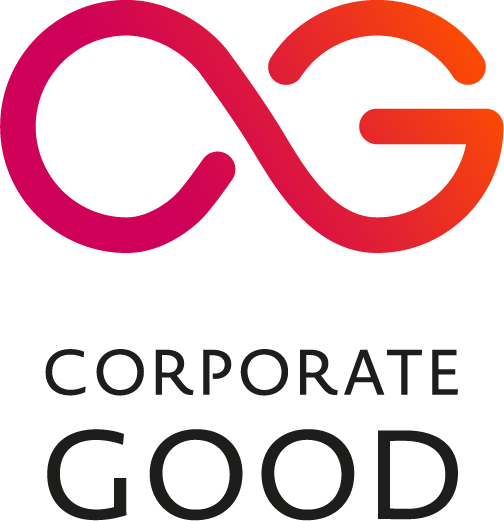

Corporate Good

Oslo, Norway
September 2024
Management consultant - for-profits
Service with Minor Environmental Footprint
Denmark,
Finland,
Norway,
Sweden
Corporate Good is a Certified B Corporation and boutique consultancy based in Norway, but can assist companies globally. We specialize in using the B Corp standards to help businesses improve their sustainability and ESG performance by becoming more purpose-driven, impact-aware and stakeholder-focused. We have a practical approach to sustainability and responsible business. For us it is important that sustainability and responsibility is an integrated part of your operations and that you involve all your employees in this work. Besides impact assessments, Corporate Good provides stakeholder engagements, materiality assessments, workshops, training, corporate-NGO partnerships and internal engagement campaigns, among others. Corporate Good is here to evolve business to be a force for good by guiding them on the journey to an inclusive, equitable and regenerative economic system for all people and the planet.
Overall B Impact Score
Governance 20.5
Governance evaluates a company's overall mission, engagement around its social/environmental impact, ethics, and transparency. This section also evaluates the ability of a company to protect their mission and formally consider stakeholders in decision making through their corporate structure (e.g. benefit corporation) or corporate governing documents.
What is this? A company with an Impact Business Model is intentionally designed to create a specific positive outcome for one of its stakeholders - such as workers, community, environment, or customers.
Community 37.3
Community evaluates a company’s engagement with and impact on the communities in which it operates, hires from, and sources from. Topics include diversity, equity & inclusion, economic impact, civic engagement, charitable giving, and supply chain management. In addition, this section recognizes business models that are designed to address specific community-oriented problems, such as poverty alleviation through fair trade sourcing or distribution via microenterprises, producer cooperative models, locally focused economic development, and formal charitable giving commitments.
Environment 12.0
Environment evaluates a company’s overall environmental management practices as well as its impact on the air, climate, water, land, and biodiversity. This includes the direct impact of a company’s operations and, when applicable its supply chain and distribution channels. This section also recognizes companies with environmentally innovative production processes and those that sell products or services that have a positive environmental impact. Some examples might include products and services that create renewable energy, reduce consumption or waste, conserve land or wildlife, provide less toxic alternatives to the market, or educate people about environmental problems.
Customers 24.2
Customers evaluates a company’s stewardship of its customers through the quality of its products and services, ethical marketing, data privacy and security, and feedback channels. In addition, this section recognizes products or services that are designed to address a particular social problem for or through its customers, such as health or educational products, arts & media products, serving underserved customers/clients, and services that improve the social impact of other businesses or organizations.
What is this? A company with an Impact Business Model is intentionally designed to create a specific positive outcome for one of its stakeholders - such as workers, community, environment, or customers.